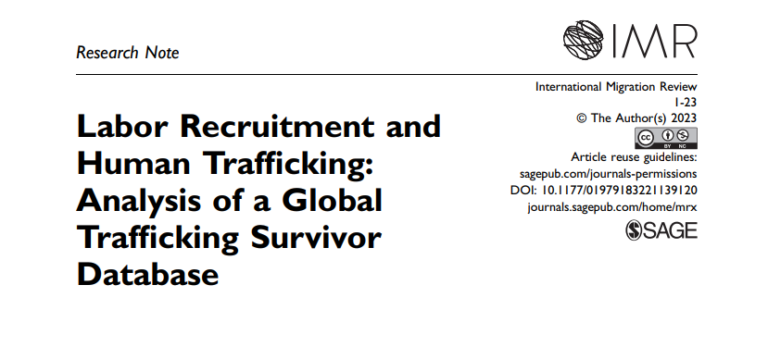Over the past decade, third-party labor recruiters who facilitate employment for migrant workers across low- and middle-income countries have often been considered by the counter-trafficking community as one of the main entry points into human trafficking. In response, anti-trafficking prevention programs have increasingly focused on addressing exploitative recruitment in migrants’ origin countries. Such programs may advocate for increased regulation of migration, greater enforcement actions against unlicensed recruiters, stricter ethical codes of conduct for recruiters and employers, and more pre-departure information about recruitment for migrants. Yet, there remains limited research about the relationship between prospective migrants, recruiters, and human trafficking, and the relative importance of thirdparty recruitment in the trafficking process. This Research Note draws on the world’s largest database of individual victims of trafficking cases, the International Organization for Migration’s (IOM) Global Victim of Trafficking Database (VoTD), to examine the role and characteristics of recruitment of trafficked victims. The VoTD contains information on nearly 50,000 trafficking victims who were registered for assistance from 2002 to June 2018. Our analysis shows that 94 percent of trafficked victims were recruited, in a broad sense (i.e., not only by third-party intermediaries). Additionally, the data presented here suggest that the relationship between recruitment and trafficking is complex and that forced labor is embedded within the wider structural issues around low-wage labor migration that lead to exploitative work conditions. Interventions to address human trafficking will benefit from strategies that target systemic issues constraining or harming low-wage labor. Further, these findings highlight the value of large-scale administrative datasets in migration research.

